At the hearings held in Sudbury on April 9, 2003, NAWL appeared before the Standing Committee on Justice and Human Rights to present our views on the question of whether the federal government should recognize same-sex marriages. We urged the committee members not to be swayed by political and social prejudice and stereotyping born of religious dogma and right-wing ideology, and to keep in mind their obligations as law makers, to ensure that laws in this area reflect the egalitarian values and human rights enshrined in our constitution, including the obligation to ensure that all persons enjoy equal recognition at law and the obligation to advance the equality rights of historically disadvantaged groups, such as lesbians, bisexual and transgendered women. We went to the hearings prepared to talk about the importance of applying basic human rights principles of gender equality, respect for human dignity, and the freedom to make fundamental choices about adult personal relationships.
We were gravely disappointed that the members of the Standing Committee refused to engage in a discussion of such principles, or of their applicability to questions regarding the state’s role in recognizing and supporting adult personal relations, including the extension of marriage to same-sex couples and the implications of alternative regimes, such as Registered Domestic Partnerships. Indeed, certain Committee members were quick to respond with uninformed, irrelevant and blatantly homophobic questions and claims that had nothing to do with the principles we were asking them to consider and to apply. They resorted to degrading myths and stereotypes, as was evident in the first comments and questions to follow our presentation, posed by Chuck Cadman, MP (Alliance): in urging the government to recognize relationships other than conjugal heterosexual unions, were we not urging the supporting of polygamy? If gays were allowed to marry, what would we suggest be done about the problems of incest that it would give rise to? If laws are not based on morality, what should they be based on?
Such comments and questions effectively diverted attention away from a substantive dialogue about the state’s role in marriage, and about the possibility of alternative regimes for recognizing and supporting adult personal relationships. The hearings were reduced to a forum for encouraging and reinforcing the expression of fear and hatred toward sexual minorities. From the outset, the organizers seemed to go out of their way to encourage such views. In fact, in each city where the hearings were conducted, the panels were set up to include representation from what the organizers imagined to be the “two sides” of the debates concerning same-sex marriage: individuals representing conservative, religious groups that virulently oppose granting any rights to gays and lesbians were seated on panels with those representing gay and lesbian support groups and services and women’s equality-seeking groups. NAWL was made to participate alongside individuals who spoke of so-called biblical “truths” about the sin of homosexuality, which was said to be accountable for the proliferation of sex crimes and sexually transmitted diseases. The consultations were made into a circus that staged a contest between conflicting rights and interests of equality and religious beliefs, even though such beliefs had nothing to do with the mandate of the Committee.
Such antics provide us with little reason to think that the Committee members will be able to fulfill their constitutional obligations as lawmakers to promote equality rights for vulnerable groups and to avoid being swayed by the very forms of prejudice that some Committee members actively welcomed from participants. Moreover we have little faith in the Committee’s ability to insist that such degrading stereotypical beliefs have no place in law or public policy, especially to the extent they are inconsistent with fundamental human rights principles.
Margaret Denike is an assistant professor and coordinator of the Program in Gender Equality and Social Justice at Nipissing University in North Bay. Formerly a member of the NSC, she is a member of the NAWL subcommittee for Lesbian Rights issues.



